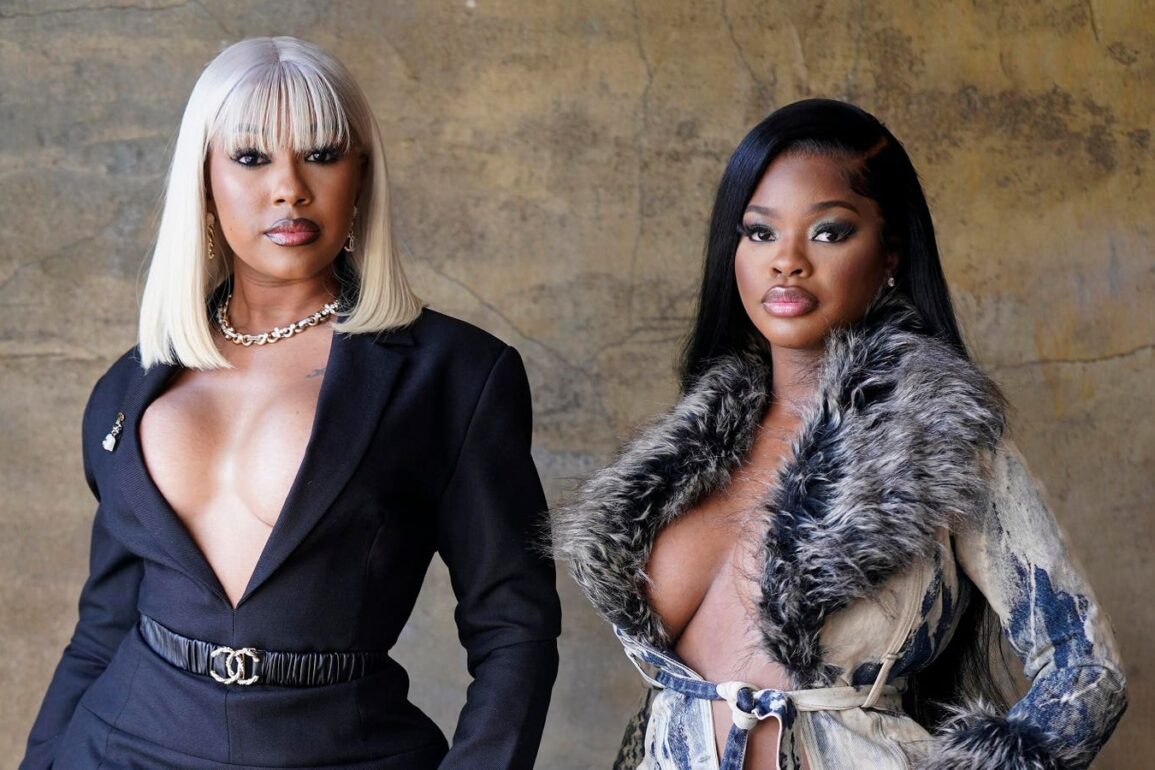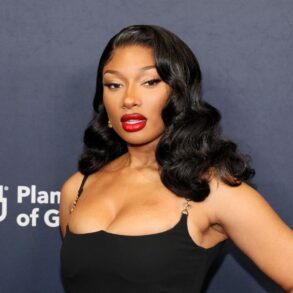
Hip-hop has been experiencing a seismic shift, and former City Girl Caresha Romeka Brownlee (famously known as Yung Miami) just confirmed that on her podcast, Caresha Please. In an intimate sit-down with her close friend Saucy Santana, the conversation included everything from her involvement with Sean “Diddy” Combs to her career, the state of her friendship with Jatavia “JT” Shakara Johnson, and her journey into creating her lane. It became clear as they discussed that Caresha’s journey—and the trajectory of female hip-hop in general—is as much about the ebbs and flows of personal relationships as it is about achieving professional success.
Caresha and Santana, both hailing from Miami’s vibrant hip-hop scene, share a friendship that appears to go beyond the industry connections often found in the music industry, so their conversation naturally veered towards the challenges of maintaining genuine connections in an industry that thrives on competition and conflict, especially in the viral age.
One of the moments that stood out in the interview was Caresha’s comments about the now-defunct City Girls group. Although she confirmed that she and JT were no longer in the girl group, she also seemingly confirmed what fans had sensed for months before the interview: The two rappers have a strained relationship and are no longer a part of the group City Girls. Caresha also shared that the relationship breakdown happened because the group struggled financially and developed creative differences over the years.
In 2018, the rap duo skyrocketed into mainstream fame and caught the public’s attention for their raunchy lyrics and the philosophy behind their brand image and artistry. The group was so popular that their name, City Girls, became an urban slang synonymous with women living liberally and on their terms.
City Girls perform live onstage for 2019 Broccoli City Festival at FedExField on April 27, 2019 in … [+]
By 2020, the group had begun to solidify their high-femme sound in the hip-hop community and spurned more viral phrases like “period.” While the group’s breakup comes as no surprise, it has lent itself to a new conversation about women in hip-hop and the tense relationship dynamics that have appeared to become part of a growing trend, especially in the age of social media. City Girls’s breakup has affected not only the group members but also the modern hip-hop community, as it represents a major shift in the dynamics of female relationships in the industry.
This conversation is a microcosm of the larger picture of female relationships in hip-hop, with social media amplifying every spat and heated online exchange. In the late 90s, rappers like Foxy Brown and Lil’ Kim had heated disagreements that intrigued their fans and triggered decades-long rivalry. Without the magnifying nature of social media, their feud always had an element of mystery to it, one that called for speculation and ongoing debate.
Yung Miami and JT of the group City Girls attend Annual Mega Friday Night Live Ladies Lounge with … [+]
In the current era, high-profile rivalries, from the longstanding tension between Nicki Minaj and Cardi B to the more recent clashes involving Cardi B and JT and Caresha and JT, are often revealed to fans in real-time, intensifying the drama. During her interview, Caresha also commented on this, stating that JT’s public feud with Cardi B further strained their friendship. She further noted that JT’s feature on Nicki Minaj’s hit “Super Freaky Girl,” Queen Mix, had added a layer of conflict to their waning relationship.
The conversation around the tension between friendship and rivalry in hip-hop is further highlighted by projects like Spotify’s “Gold Standard” art exhibit. This exhibit, which celebrates the contributions of women in hip-hop, has been both praised for its recognition of the new generation of women in hip-hop and critiqued for the choices it made in terms of who to spotlight. Spotify’s choices have triggered further debate about the nature of female relationships in hip-hop and how they influence the industry’s narrative. Many fans were outraged that Nicki Minaj, who is considered a hip-hop icon, was not involved in the exhibit because she had feuded with a few of the featured rappers, including Caresha. Regardless, while the headlines tend to focus on the drama, there’s a theory that the interpersonal rifts that happen “behind the scenes” often influence who gets featured on a hit record, whose song charts, and how music listeners perceive hip-hop’s evolving culture-defining moments.
This post was originally published on this site be sure to check out more of their content.









